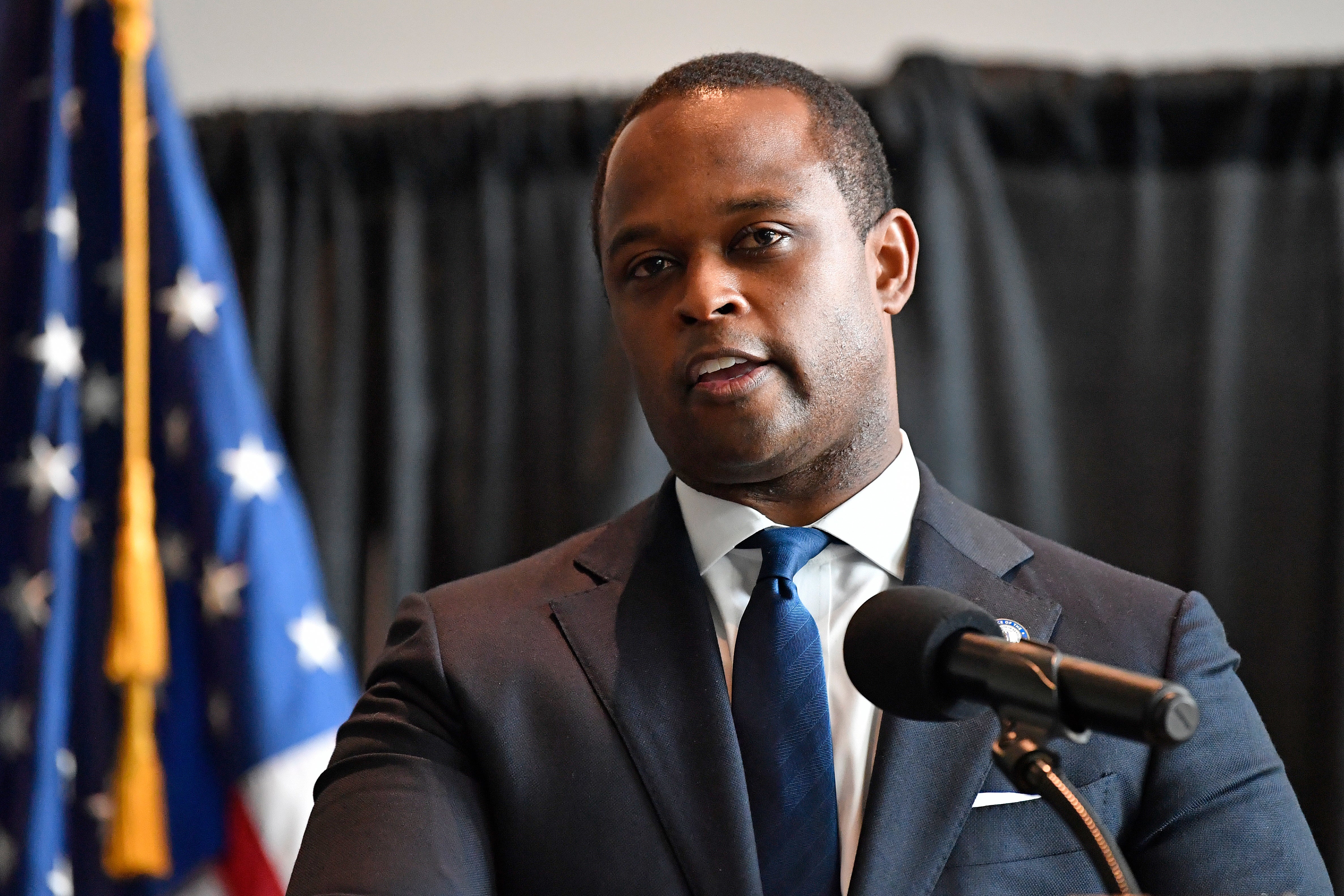Kentucky judge blocks parole board rule on new hearings
A Kentucky judge has temporarily blocked a new parole board policy that would give dozens of convicted murderers another chance at potentially cutting short their life-in-prison sentences

A Kentucky judge has temporarily blocked a new parole board policy that would give dozens of convicted murderers another chance at potentially cutting short their life-in-prison sentences.
The temporary restraining order issued this week by a circuit judge was requested by Attorney General Daniel Cameron and Jackie Steele, commonwealth's attorney for Knox and Laurel counties.
The court order blocks the Kentucky Parole Board from giving a new parole hearing to more than 40 prisoners previously ordered by the board to serve out life sentences for such crimes as murder, rape and kidnapping, Cameron said. The new policy sparked an outcry from prosecutors statewide.
“We are grateful that the court acted with urgency to grant the temporary restraining order and stop the Parole Board from giving new hearings to 45 convicted criminals who are responsible for some of the worst crimes in recent history," Cameron said in a statement Friday.
"We will continue to fight in court on behalf of Kentucky crime victims and prosecutors to ensure that the board’s directive is permanently stopped,” the attorney general added.
The state Parole Board said Friday that it would comply with the court order, and that the parole eligibility hearings at issue in the matter would not go forward.
Until the rule was blocked, some prisoners previously ordered to serve out life sentences were scheduled to receive another parole eligibility hearing as early as next month, Cameron's office said.
They included a man responsible for the murder and kidnapping of two high school students, a woman responsible for murdering her 10-year-old stepson, a man who killed two teens on their first date and a man responsible for kidnapping, sexually assaulting and killing a college student, the attorney general's office said.
The restraining order was the first step requested by Cameron and Steele in challenging the rule. They filed a lawsuit last week in Laurel County Circuit Court asking that the policy be invalidated, claiming it violates state law and Kentucky's constitution.
The suit takes aim at the rule limiting the parole board’s ability to order a prisoner to serve out a life sentence at an initial parole eligibility hearing. Allowing new parole hearings would subject the victims’ families to reliving the crimes, Cameron and Steele said.
“When victims are finally told that those responsible for carrying out a crime against their loved one will serve out their sentence, they feel like they can close out a painful chapter and start the healing process,” Steele said. “For a government agency to open it all back up, like the Parole Board did, is terrible.”
Cameron claims the parole board lacked the legal authority to issue the new directive this spring. Even if it did have the authority, the board failed to follow the administrative regulation process, which requires a review by state lawmakers and a public comment period, the lawsuit said.
Bookmark popover
Removed from bookmarks